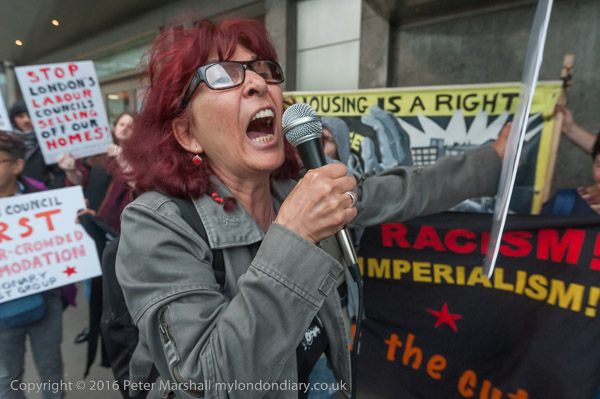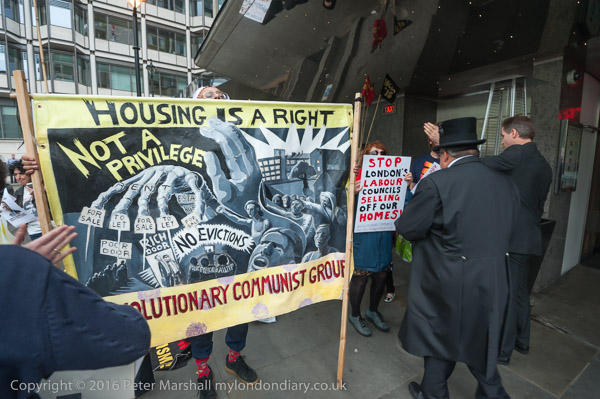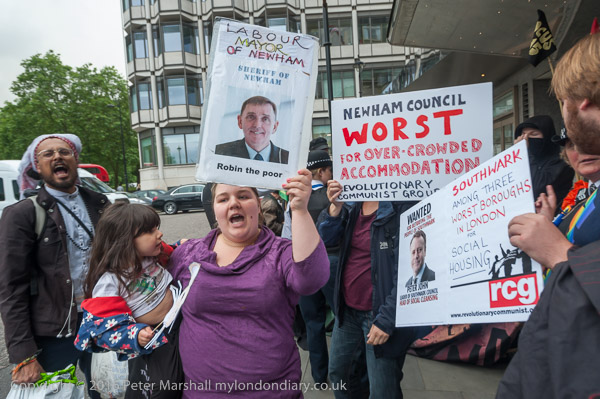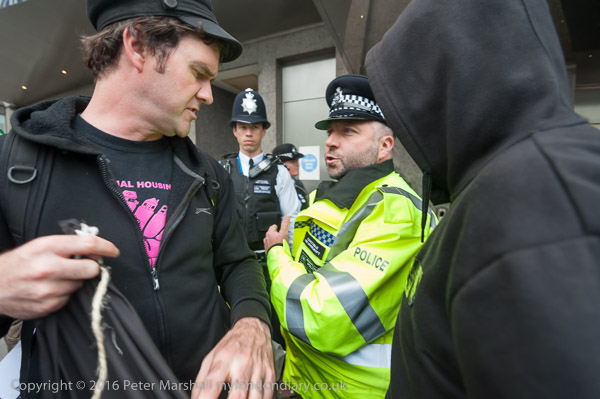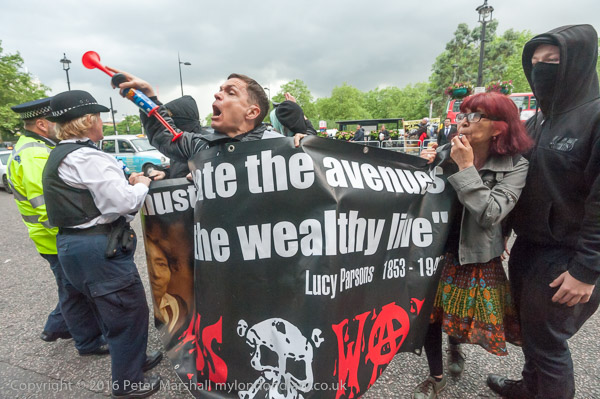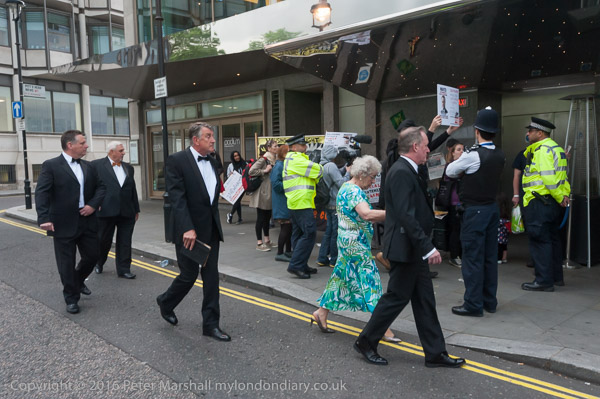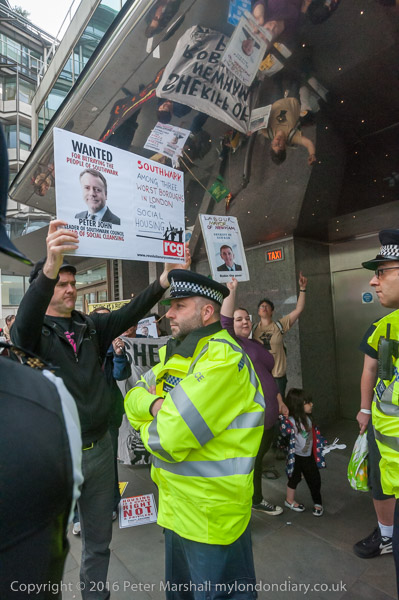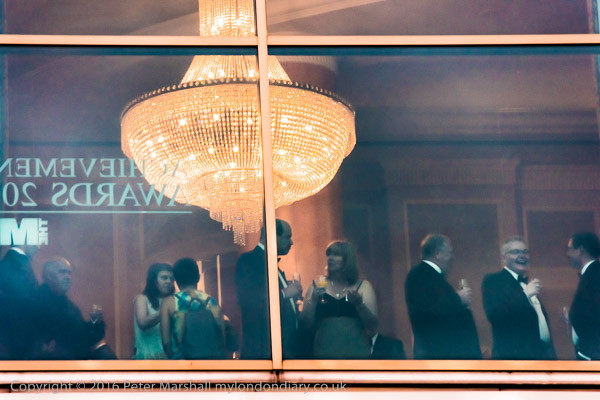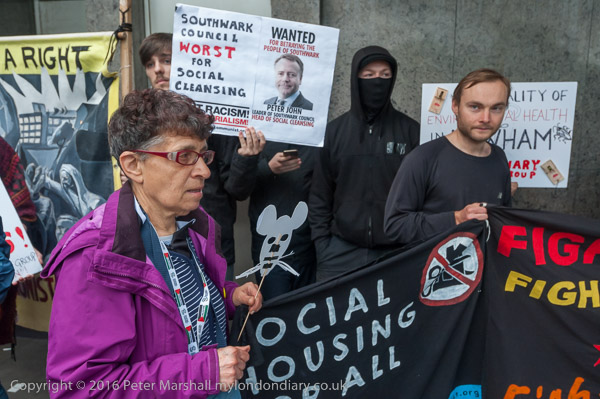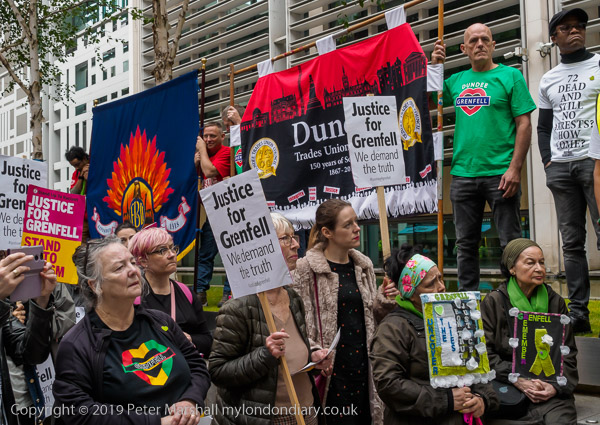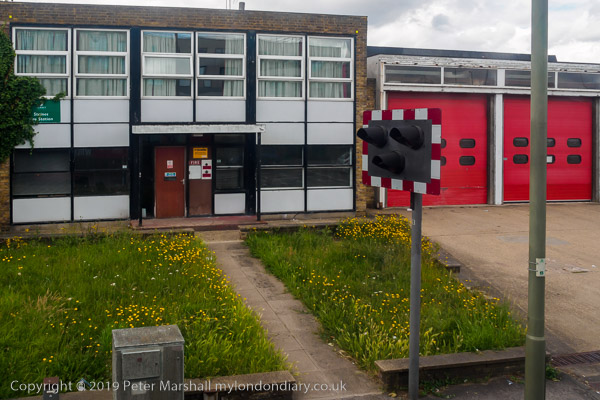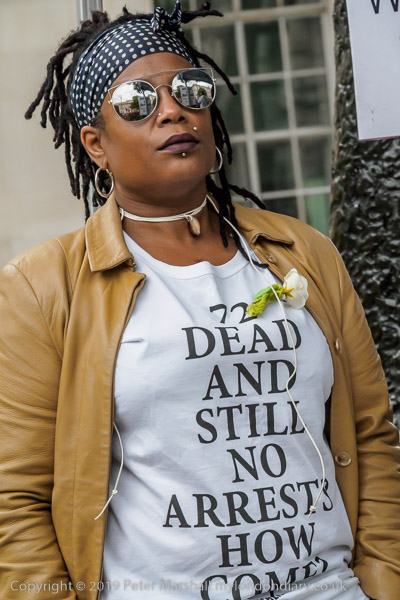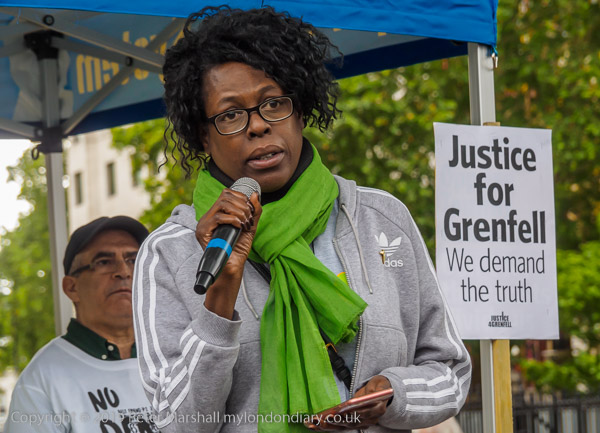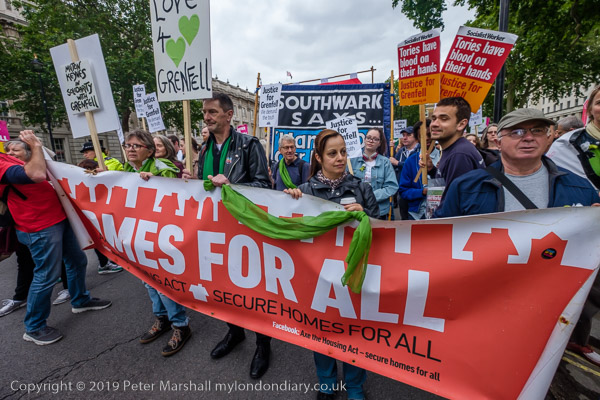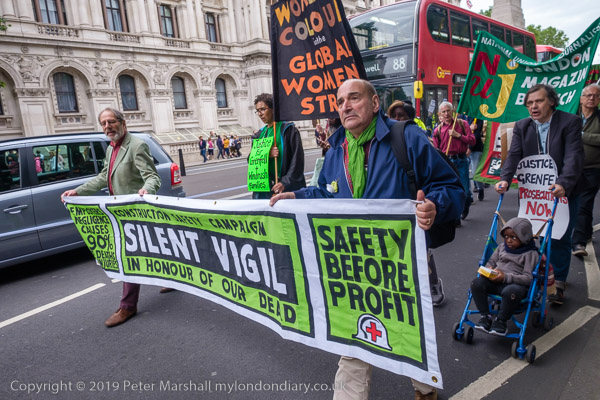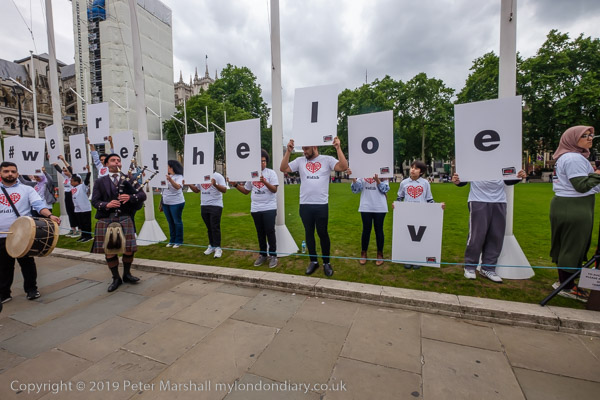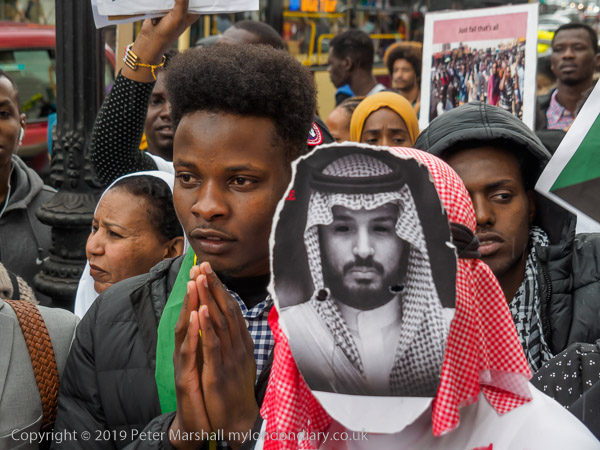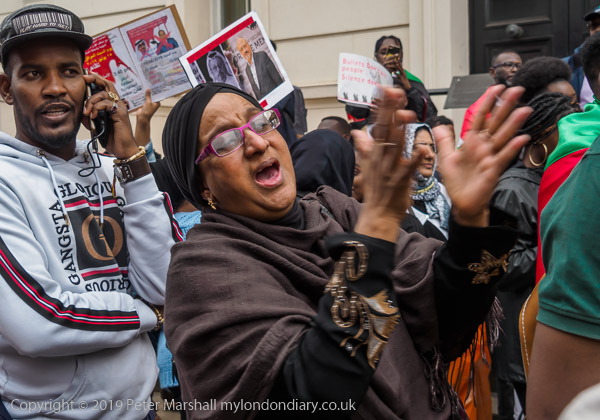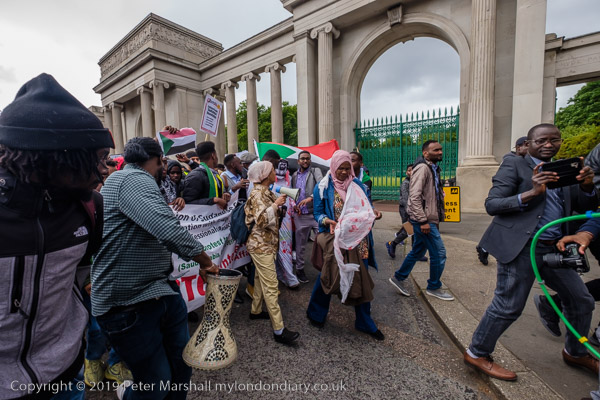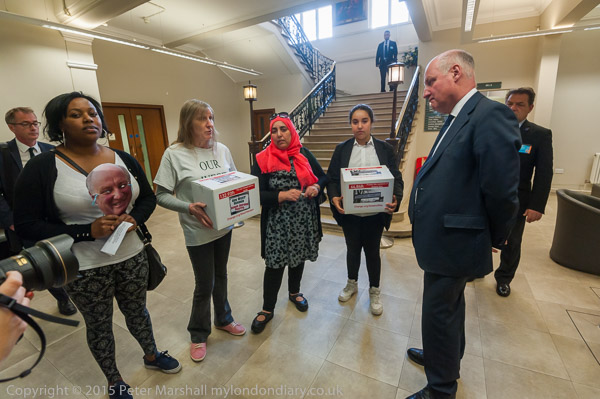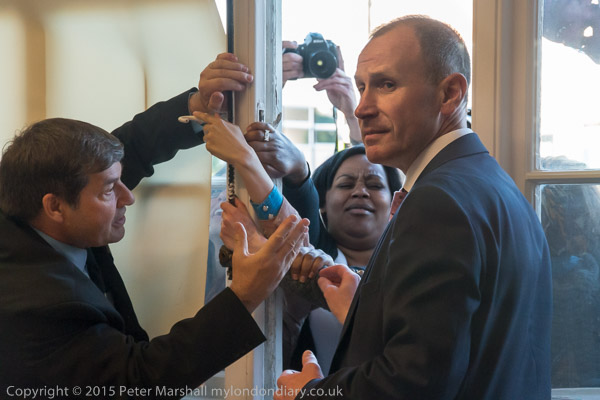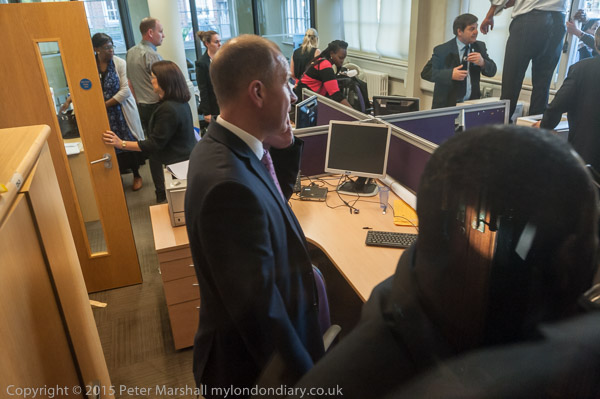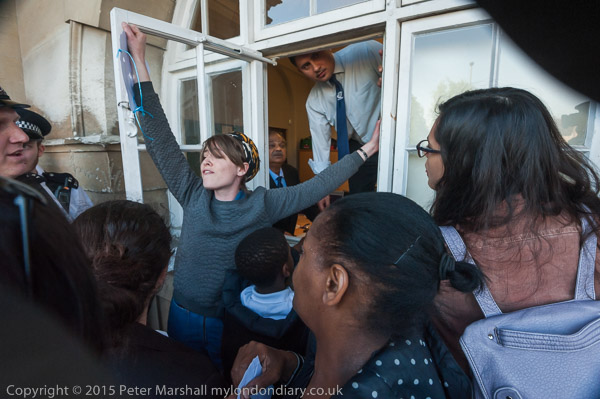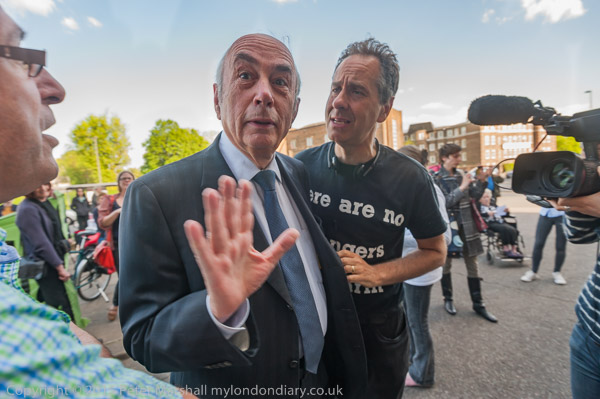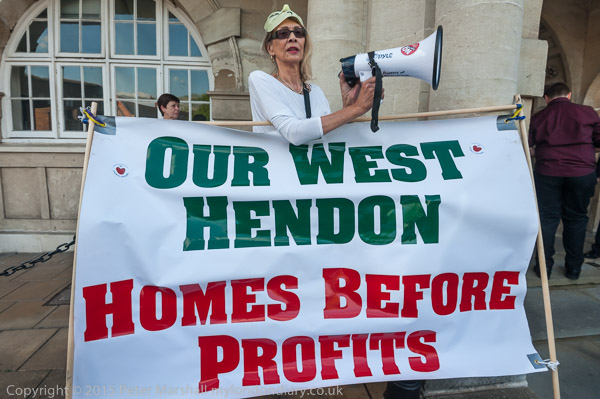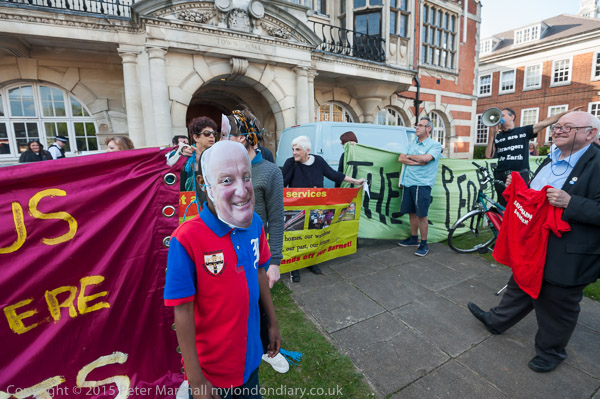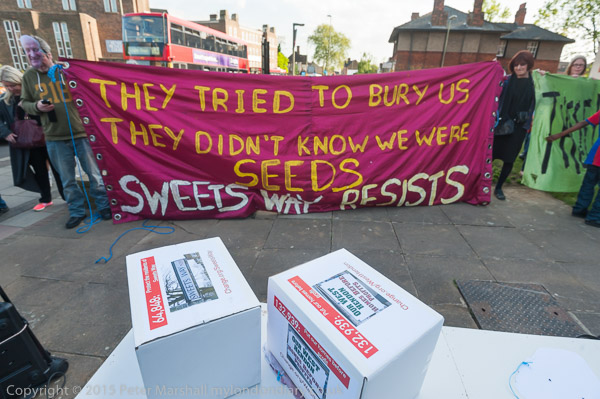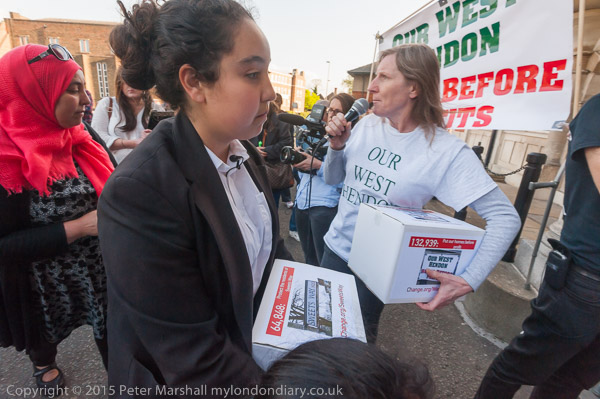Barnet Spring – Save Local Democracy. The pictures in this post are from a march in from Finchley to Friern Barnet Community Library on 23rd March 2013.
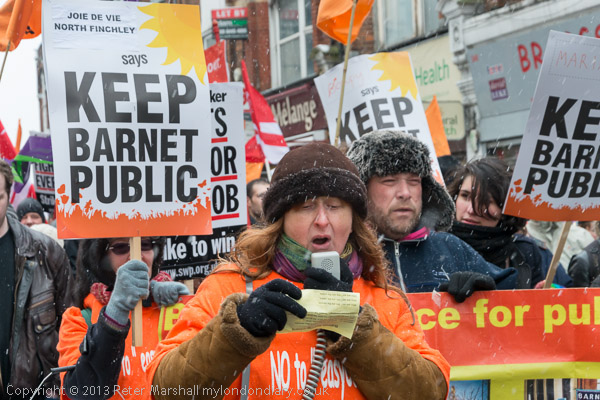
Politics in the UK has always been a messy business, both at national and local levels and has become more so in recent years, particularly as the Conservative Party has been keen to promote anti-democratic practices honed in the USA as well as accepting large donations from wealthy sources of doubtful legality as recent controversies over Russian oligarchs have brought into public debate.
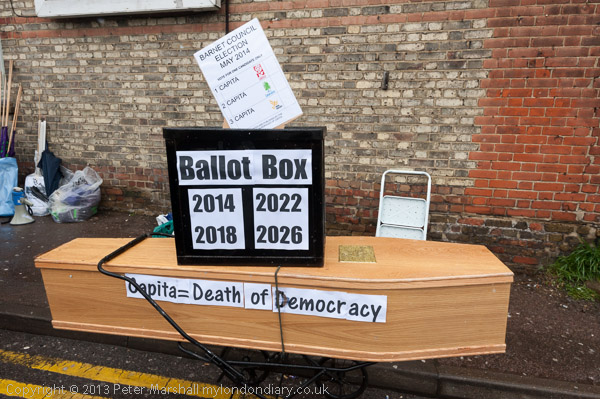
The current problems have been exacerbated in particular by the Brexit debate, largely carried out through totally misleading promises and false information, which led to leaving Europe and an unhealthily large parliamentary majority in the 2019 election, with draconian laws now being enacted. As well of course as some rather large financial gains by some of those leading the lying.
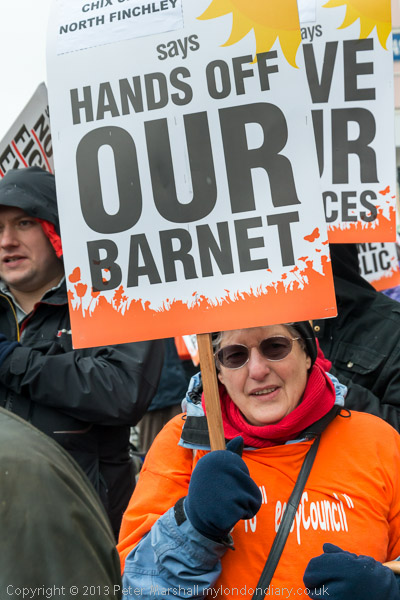
Corruption has always been at the heart of our political system, both at local and national level, and involving some members of all political parties. While we may have got rid of some of the more obviously dubious practices, those which are less obvious appear to have become industrial in scale, now no longer solely the province of individuals and families (particularly those royal and noble) but of companies, including the mega-nationals.
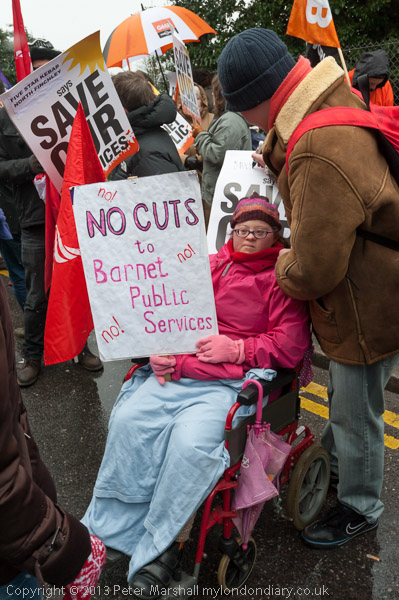
Clearly our electoral system – both at local and national level – has outlived its usefulness and this is reflected in low turnouts at polls as well as a general disillusion in the political system. We need to move to voting systems that more accurately reflect the people and away from one that effectively disenfranchises so many of us. Perhaps to a very different model of government which removes the idea of any permanent political class.
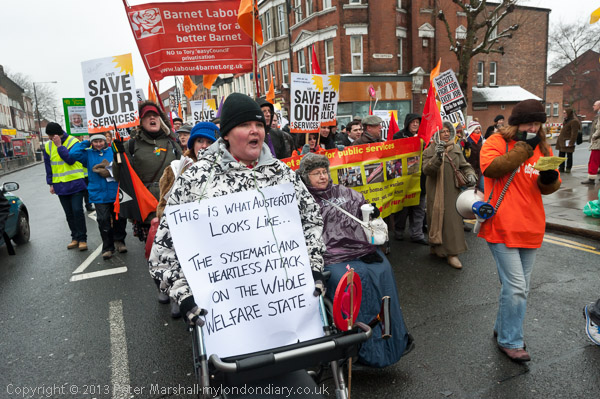
Reform in the UK has almost always been slow and piecemeal, when what we need are radical changes. After many years of debate we have just recently made minor changes to the system of leasehold, when what is needed is its complete abolition, with all leaseholders being granted freehold. Even probably the most radical change of the last century, the formation of the NHS was hamstrung at birth by concessions made – and has since been considerably nibbled and increasingly hollowed by creeping privatisation.
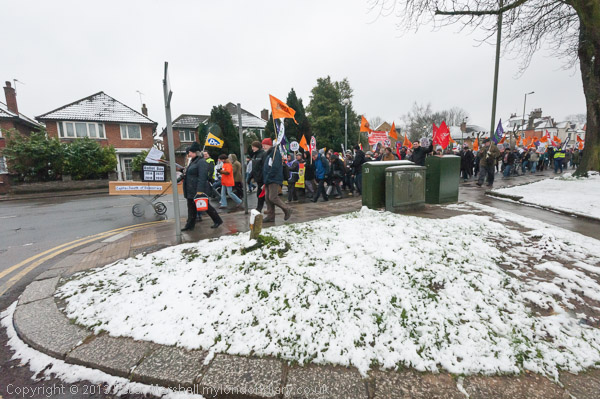
The reorganisation of local authorities in 1965 was a muddled and half-hearted one, reflecting an unwillingness in national government to cede power to the regions while moving local government further from local people. The advances it could have brought were largely removed by Thatcher’s contempt for local authorities and in particular in London her abolition of the Greater London Council. It’s hard to walk or ride a bus across Westminster Bridge and not to feel rage at seeing the range of offices she sold off on the south bank.
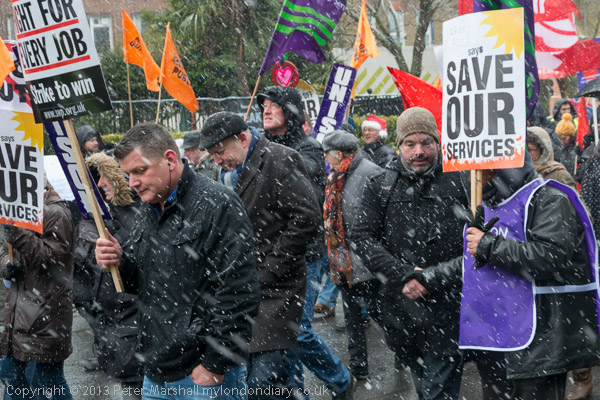
Recently we have seen a backlash against the leader and cabinet model of local councils which gives control to the leader and a select group of councillors and in 2000 became (along with Mayor and cabinet for those authorities with a directly elected Mayor) the required method. In 2012 authorities were allowed instead to revert to the more democratically accountable Committee-based system which had previously been the practice.
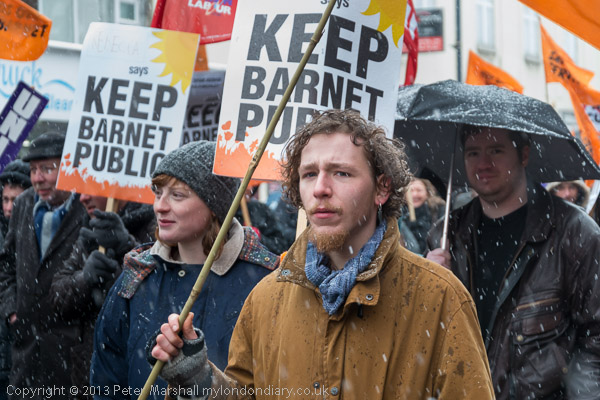
As I wrote back in 2013, “Barnet Council in North London is widely seen as a blueprint for Tory plans to end local democracy and privatise nearly all public services, leaving the local authority merely as a commissioning body.” Barnet’s CEO Nick Walkley introduced the ‘One Barnet’ plans, known as “easyCouncil” in 2009 and negotiated contracts with companies such as BT and Capita worth around £1 billion.
As I commented:
This is a development that ends real local involvement in running local affairs, locking councils into lengthy contracts which seldom meet local needs, but which councils are powerless to change and which often involve huge legal costs for the councils when disputes arise. One contractor has already successfully sued Barnet for over £10m when their contract failed to deliver the anticipated profits, and another, running services for adults with disabilities is failing financially and is drastically reducing the level of service it will provide.
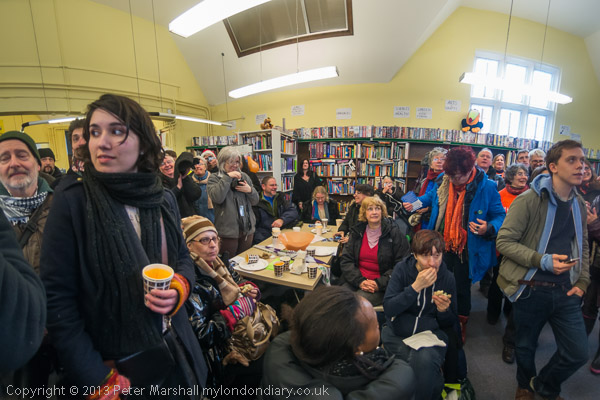
On Saturday March 23rd 2013 I joined with several hundred to march through freezing snow in Finchley against the privatisation of local democracy in Barnet and against cuts in public services . The march began in Finchley, with a number of speeches from an open-top bus, with speakers including Green Party GLA member Jenny Jones (now Baroness Jones of Moulsecoomb), And Labour MPs John McDonnell and Jeremy Corbyn. The march ended at the Friern Barnet People’s Library, closed by Barnet Council in April 2012, but rescued determined by determined community action aided by squatters and reopened officially as a community library in February 2013.
More on My London Diary: Barnet Spring – Save Local Democracy
